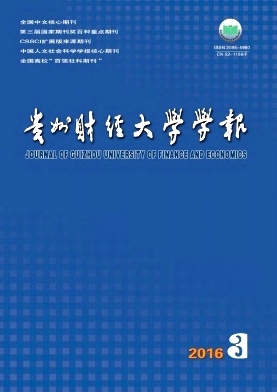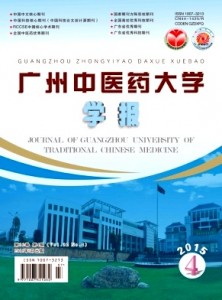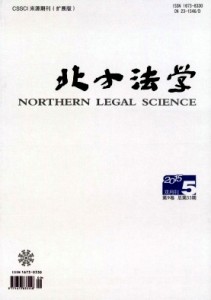作者:左东岭
授予学位单位:南开大学
授予时间:1995年7月
二级学科名称:文艺学
指导教师:罗宗强
博士论文题目:李贽与晚明文学思想
摘 要
本文是对明代重要思想家与文学批评家李贽的全面系统研究。全文由六章组成:
一、李贽所面临的历史前提。它是对李贽之前的文人心态,阳明心学与文学思想梳理。指出它们均朝着自我表现与生命愉悦方向发展,但同时又缺乏深刻性与系统性。
二、李贽的人格与心态。本章阐述李贽狂傲人格与其自我价值追求间的关系,并指出其形成的历史原因与现实依据.
三、李贽的哲学思想。它集中探讨其性空理论与童心说之关系,并指出在此基础上形成的自然政治观与自然人性论.
四、李贽文学思想。本章共分四方面:1.自我愉悦的文学功能观;2.作家主体要素的强调;3.文学的自然表现观;4.真与趣的审美标准。
五、李贽与晚明文坛。本章重点探讨李贽对公安派与金圣叹的人生价值观与文学思想的影响, 并指出以李贽为代表的晚明狂放思潮终结的历史原因。
本文认为:李贽是从明中期到晚期哲学与文学思想发展的重要中介。他继承并改造了前辈们的思想,同时又深刻影响了晚明思想界与文坛。
Title of the Dr. Degree’s Thesis: LiZhi and Literary Thoughts in Later Ming Dynasty.
Introduction of the Author: Zuo Dong-ling, was born on June 12, 1956. Under the guidance of Prof. Luo Zong-qiang, he was awarded the Dr. degree of literature at Nankai University on June, 24 1995. He continues his research works in the field of literary thought history.
Keywords: LiZhi, mental state, self-value, expression of nature.
Abstract: This dissertation is an overall and systematic study on LiZhi, an important thinker and literary critic in Ming Dynasty. The pioneers have made much discussion in the domain, but many problems, such as the relationship between LiZhi and Wang’s doctrine, LiZhi’s real mental state, the real connotation of innocence’s theory, have not been solved yet. This thesis makes an attempt to resolve all above problems.
This dissertation consists of six chapters: (1) Historical situation that LiZhi faced with. It is a study of mental state of scholars, Wang Yang-ming’s Mentalism and literary thoughts before LiZhi, which points out that all of them were developing towards self-expression and enjoying of human life, but lacked of deepness and systematicness. (2)LiZhi’s personality and mental state. The research of relationship between LiZhi’s monstrous personality and exploration of self-value is regarded as a focal point. It shows that Li’s main objective of all his life is to realize self-value and the immortality of self-spirit. It also explains the historical reasons and realistic surrounding which affect the formation of his personality and mental state. (3) LiZhi’s philosophical thought. It focuses on the connotation and features of the theory of mental-empty and innocence. It was the basis of this two above-mentioned ideas on which LiZhi’s natural view of political and human life was formed. (4) LiZhi’s literary thought. It includes four parts: A. The literary function of self-enjoying. B. To attach importance to the subjective factor of writer. C. The theory of natural expression of literature. D. The aesthetic standards of reality and interest. (5) LiZhi’s influence on the literary world in later period of Ming Dynasty. The effects reflect mainly in the literary thoughts of GongAn school, which was a main literary school at that time, and Jin Sheng-tan, an outstanding literary critic. It comprises two aspects: one was the view of human life and the other was natural expression of literature. After that it elaborates on the historical reasons for the ending of the Romantic Thoughts Trend represented by LiZhi in later period of Ming Dynasty.
In conclusion, LiZhi was an intermediary on the development of philosophical and literary thought from the middle to the later on Ming Dynasty. He inherited and reformed the thoughts of his pioneers. Moreover, he had a great influence on the ideology and the literary circle in the later period of Ming Dynasty.
Research Achievements:
1.Zuo Dong-ling: The Dispute Between Geng Ding-xiang and LiZhi and LiZhi’s Mental Change in His Old Age, The Northern Forum, No. 5, 1994.
2.Zuo Dong-ling: A Clue to the Artistic Evolution of China’s Novel, Zhengzhou University Magazine, No. 2, 1992.
相关文章:
声明: 本文由( admin )原创编译,转载请保留链接: http://www.hxlww.net/4128/hxlwfb
- 上一篇:论合理使用–关于著作权限制与反限制的研究
- 下一篇:论清朝对西藏地方的治理






近期评论